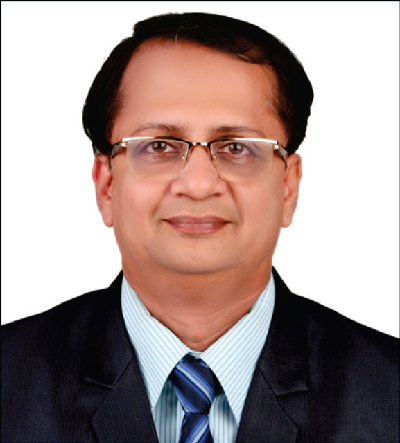Speaking on the increasing number of new breast cancer cases, Dr Sanjay Dudhat - surgical oncologist at Nanavati Super Speciality Hospital, Mumbai, focuses on lifestyle changes and developments in treatment of the disease.

THE GOAN NETWORK
THE GOAN: What causes breast cancer?
Dr Sanjay Dudhat: There are many risk factors which can lead to breast cancer. Women with longer menstrual history (early menarche-before 12 years and late menopause - after 50 years) are found to have higher risk. Obesity, especially after menopause, has increased the incidence of breast cancer because of the production of extra Estrogen from body fat. Breast cancer can run in families but only 10-15 per cent of them can be hereditary and resulting from genetic mutations (eg BRCA1 and BRCA 2). The other risk factors like hormone replacement therapy (HRT), high fat diet, excessive alcohol consumption, smoking, first pregnancy after age 30 and women with no children contribute sizably to the chances of developing breast cancer.
TG: What should women do to protect themselves from breast cancer?
SD: Breast cancer incidences can be decreased by reducing above mentioned risk factors. Planning for the first pregnancy before you turn 30, breast feeding the baby for at least a year, maintaining appropriate weight, having low fat, healthy diet and abstaining from alcohol as well as smoking can reduce the risk of breast cancer in women. In case a family history of breast cancer prevails, such high risk individuals can undergo frequent screening with the help of genetic counselling.
TG: What are the signs and symptoms of breast cancer?
SD: A painless lump in the breast could be a common symptom apart from a change in the shape of the breast, a lump of thickening in the breast or arm pit, dimpling in the skin, abnormal nipple discharge and nipple retraction etc. To detect these signs early, self-breast examination should be encouraged among all women starting from the age of 20. Screening mammography with sono-mammography should be done yearly from age 40 onwards.
TG: What is the ideal lifestyle that could safeguard women against breast cancer?
SD: Healthy, low-fat diet, good amount of physical activity, regular exercise, yoga and meditation, no smoking, no alcohol consumption, living stress-free life would keep away from cancer and other illness.
TG: What could be the best treatments for breast cancer?
SD: Surgery, chemo-therapy, radiation therapy and hormonal therapy are the main treatments for breast cancer. All these treatments are executed according to the presentation and pathology report of the patients. Breast conservation surgery is more commonly used in small tumours and young patients. Newer advances in chemotherapy and targeted therapy have given added advantage in the curing process. Radiation therapy and hormonal therapy along with surgery also benefits the patients to increase the chance of cure. The side effects of these therapies can be easily managed.
TG: Any technological advances in the field of breast cancer?
SD: Genetic counselling is really becoming helpful in patients with family history of breast cancer. These genetic tests (BRAC1 and BRCA2) will detect high risk individuals for breast cancer and we can screen them frequently. Breast reconstruction with implants after removal of the breast has given good emotional uplift to breast cancer women. The new researches in chemotherapy and targeted therapy have added a lot of benefits in the management.